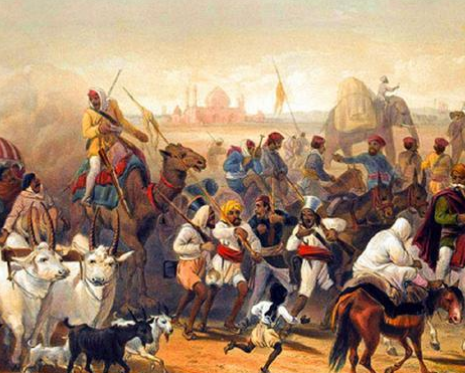The Indian National Rebellion was a large-scale struggle for national independence conducted by the Indian people against British colonial rule in the early 20th century. The rebellion lasted for more than two years and dealt a heavy blow to the British colonists. However, in a sense, the Indian National Rebellion did not fully achieve its objectives. So, was the Indian National Rebellion a success or a failure? This article will dialectically analyze this issue from multiple perspectives.

Firstly, from the perspective of the outcome of the rebellion, the Indian National Rebellion can be considered successful to some extent. During the rebellion, the Indian people demonstrated a tenacious spirit of resistance, forcing the British colonists to re-examine their dominant position in India. After the outbreak of the rebellion, the British government had to dispatch a large number of troops to suppress it, which diverted their military strength during the Second World War and had a certain impact on the war's outcome. Additionally, the Indian National Rebellion drew greater international attention to the issue of India's national independence, creating a favorable external environment for India to ultimately achieve independence.
However, from the perspective of achieving national independence, the Indian National Rebellion did not fully accomplish its intended objectives. Although the rebellion dealt a heavy blow to the British colonists, Britain did not abandon its rule over India. On the contrary, to stabilize the situation, the British government tightened its control over India after the war, implementing a series of strict laws and policies. This meant that the Indian people continued to live under oppression and exploitation in the post-war era.
Moreover, there were some issues with the organization and leadership of the Indian National Rebellion. Although many heroic leaders emerged during the rebellion, there were significant differences and conflicts among them. This led to a failure to unite the rebellion's forces, resulting in the British colonists defeating them individually. This was one of the important reasons why the Indian National Rebellion did not achieve ultimate success.
In conclusion, while the Indian National Rebellion can be considered successful to some extent, it did not fully achieve its intended objectives of national independence. Although the rebellion dealt a heavy blow to the British colonists, Britain did not relinquish its rule over India. Simultaneously, the issues with the rebellion's organization and leadership limited its ultimate success. Therefore, we cannot simply categorize the Indian National Rebellion as a success or a failure but should analyze it comprehensively and objectively from multiple perspectives.
Disclaimer: The above content is sourced from the internet and the copyright belongs to the original author. If there is any infringement of your original copyright, please inform us and we will delete the relevant content as soon as possible.
































